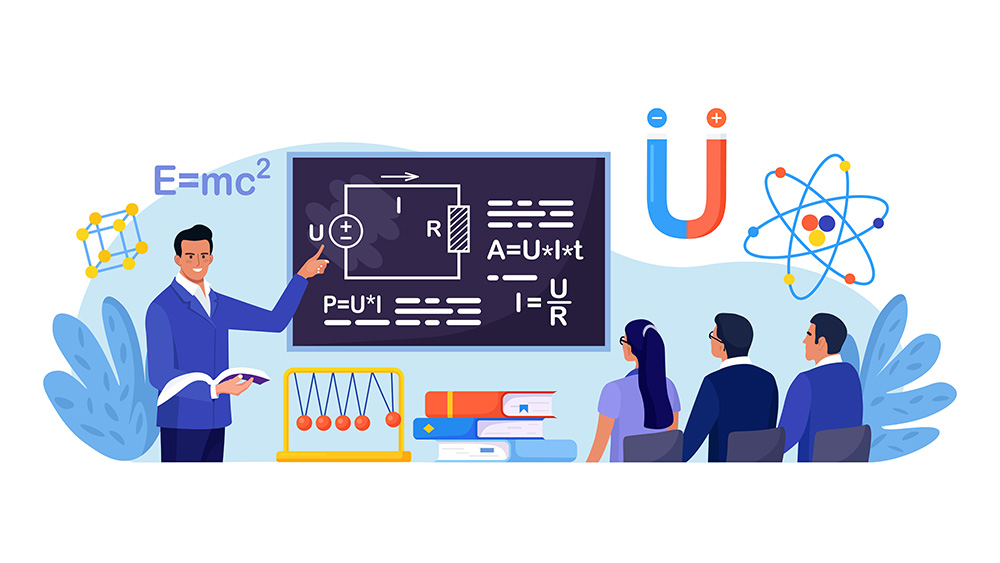What Exactly Is IB Inquiry-Based Home Education?
Few topics as a parent or tutor are more frequently questioned than how to pique our children’s interest in learning. Finding the factors that encourage our kids to learn and steer clear of the dreaded “I don’t know” responses can be a difficult challenge.
As a result, many are using an approach called inquiry-based education. So what exactly is inquiry-based learning?
Education that is inquiry-based (in IB) aims to “spark curiosity” rather than merely asking students what they want to know.
IB learning essentially de-emphasizes tutor-centred education and instead emphasises the students’ own responsibility for learning. In other terms, it involves discovering a technique to stimulate children’s innate desire to learn and leveraging that desire as motivation to pursue further education.
According to the definition of “inquiry,” it is “a looking for facts, data, or knowledge — obtaining information by questioning.” From the moment of birth until the moment of death, people are engaged in an ongoing process of inquiry. Call IBGA for home tutor in Delhi, Gurgaon – India!
A tutor must know that IB education produces a more compelling educational experience by adopting strategies that transfer control of the learning method from the tutor to the individual students. It is an approach that goes beyond textbooks and encourages kids to think critically and freely to develop their own comprehension of many subjects.
Our Perspective On Inquiry-Based Learning
Through in-depth questioning and exploration, inquiry-based learning engages students by forging connections to their everyday lives. The inquiry-based learning methodology promotes problem-based and experience learning among students.
The goal of inquiry-based learning is to pique students’ curiosity, which accomplishes far more complex objectives than simply providing facts. In spite of its complexity, tutors find inquiry-based learning to be simpler since it not only transfers responsibility from tutors to students but also engages students.
It’s crucial to use inquiry-based learning to excite kids. It encourages students to become experts in their educational process. However, this kind of education necessitates a certain amount of self-directed learning abilities. Children must have mastered the information-processing abilities required for working independently.
What Make Up An Inquiry-Based Learning Programme?
There are numerous methods that tutors can implement inquiry-based instruction, but some of its fundamental elements include:
- Observation/Orientation: The tutor introduces a new idea or subject, and the pupils then investigate it through practical exercises, in-person instruction, and independent study.
- The students generate questions, make hypotheses, and make predictions regarding the subject.
- The investigation stage of inquiry learning lasts the longest. Tutors encourage their students to take the lead. With the aid of the tutor, kids also investigate, identify solutions, and gather data to substantiate or refute hypotheses. We are ready to help you with, Gurgaon – India!
- Students reach conclusions and find the solutions to their inquiries after gathering the data and necessary information. They discover whether their theories or concepts are valid or flawed. This might lead to more inquiries.
- Discussion: At this point, all students can submit their findings and learn from one another. The instructor fosters debate and thought by posing more questions during talks.
There is a great deal of freedom in the inquiry-based learning model. Although tutors usually start with inquiry-based science courses, the inquiry-based method can be used to help students learn in any topic or subject.
Long-term learning success for students can be aided by teaching them these transferable abilities. Students must plan their personal time and conduct their own research while in higher education. Long-term skill development is possible with this method of instruction.
What Advantages Can Inquiry-Based Learning Strategies Offer?
Inquiry-based learning has a lot to offer students in the classroom. Several of these advantages include:
- Enhances the educational experiences: Attending a lecture in a classroom while taking notes is neither a productive nor an engaging method to learn. Students in inquiry-based learning investigate the subjects themselves, which raises their thinking level and enhances their learning process.
- Enhances abilities required for other learning areas: As students investigate an idea, they develop communication and critical thinking abilities. The development of cognitive abilities through inquiry-based learning promotes lifelong learning and improves students’ grasp of other disciplines.
- Promotes curiosity: An inquiry-based educational approach gives pupils the opportunity to express their thoughts and worries on a subject. It increases students’ interest in the subject matter and develops their ability to continue learning about topics they are passionate about.
- Enhances students’ subject understanding: Students can relate their learning through inquiry-based learning. Instead of just memorising and retaining information, this helps pupils understand concepts and the investigative process. Contact Us for a home tutor in Delhi, Gurgaon – India!
- Inquiry-based teaching methods allow students the chance to gain understanding of the concepts, which gives them a feeling of autonomy for their learning. As a result, they take responsibility for their education. Learning styles can be acquired by students in their chosen ways rather than by the teacher lecturing them on what they should know.
- Students are completely engaged in their education when they use an inquiry-based learning strategy, which is a type of active learning. Students gain a better understanding and become more engaged in their studies when they are pushed to explore ideas, create novel connections, and ask crucial questions.
- Due to their greater behavioural, intellectual, and emotional investment in their education, engaged children have a higher chance to do well on standardised examinations and graduate from high school.
- Learning is made more enjoyable through inquiry-based teaching. In addition to gaining a greater comprehension of the subjects, students who interact with the learning tools in their chosen manner also grow to enjoy and be passionate about learning and discovery.
- When teaching using an inquiry-based method, teachers have the chance to closely monitor their pupils because they are placed in the centre of the session. The teachers in the classroom don’t disengage from the pupils in different grade levels while using inquiry-based teaching methodologies. They stay near the students, directing and keeping an eye on them as necessary.
Related Courses
WHAT STUDENTS SAY
















